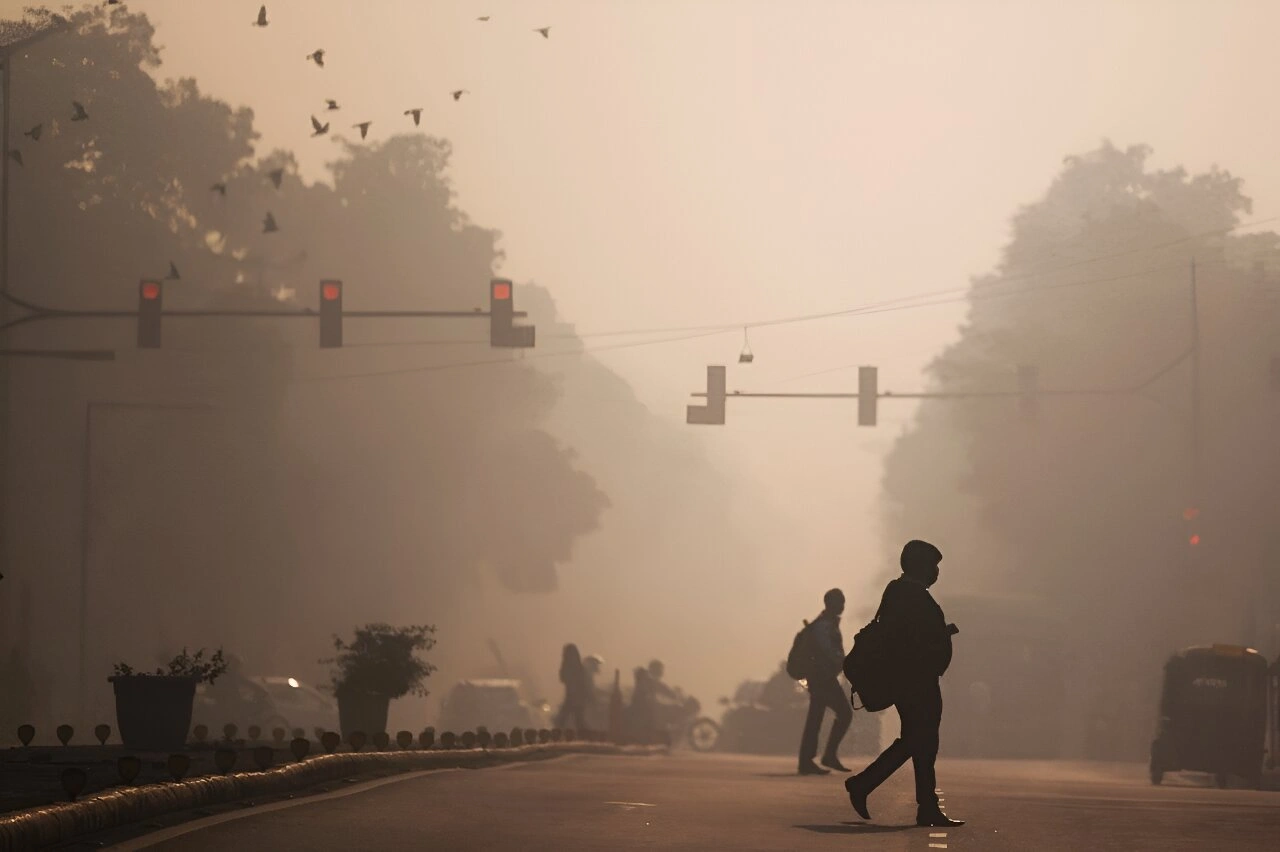New Delhi, India’s capital, moved schools to online classes on Monday due to a severe smog crisis. This step aims to tackle the city’s worsening air pollution, which has reached dangerous levels.
Alarming Pollution Levels
On Sunday evening, PM2.5 pollutant levels—tiny, cancer-causing particles that can enter the bloodstream through the lungs—were 57 times higher than the World Health Organization’s (WHO) recommended daily limit. By Monday morning, the levels remained dangerously high at 39 times the safe threshold, as thick, grey smog blanketed the city.
Causes of Smog
Every year, New Delhi experiences toxic smog caused by several factors:
- Farm stubble burning: Farmers in neighboring regions burn leftover crops to clear fields for the next planting season.
- Industrial emissions: Factories release harmful pollutants.
- Traffic fumes: Heavy vehicle emissions contribute significantly to the smog.
New Restrictions to Combat Pollution
City officials have imposed several measures to reduce air pollution:
- Online Classes: Physical classes are now stopped for all students except Class 10 and 12, announced Chief Minister Atishi. Primary schools had already ceased in-person classes last Thursday.
- Traffic Reduction: Authorities hope online schooling will lower the number of vehicles on the roads.
- Diesel Trucks and Construction: Limitations have been placed on diesel-powered trucks and construction activities to curb emissions.
- Health Warnings: The government has advised children, the elderly, and people with heart or lung problems to stay indoors as much as possible.
These restrictions aim to “prevent further deterioration” of air quality, officials stated.
The Impact on Residents
For many of New Delhi’s 30 million residents, escaping the smog is challenging. Most cannot afford air filters or homes that can fully block the acrid air, which is blamed for thousands of early deaths annually.
Recurring Winter Crisis
The city’s air pollution crisis worsens each winter due to cooler temperatures and slow winds, which trap pollutants in the atmosphere. The smog typically begins in mid-October and lasts until January, making New Delhi the most polluted city globally during this season.
Clean Air as a Fundamental Right
In a landmark decision, India’s Supreme Court recently declared that clean air is a fundamental human right. The court ordered both the central and state governments to take action against the hazardous air pollution affecting millions.
As restrictions came into effect on Monday, city officials continue to explore ways to address the recurring pollution crisis and protect public health.









